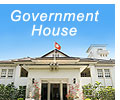
|
Exploring new areas of co-operation with FranceHong Kong is a renowned international financial services, trade and transportation centre. We have established long-standing advantages and working partnerships in these areas. To sustain our social and economic growth, we must not only give full play to our strengths and consolidate our relationships with existing partners in these areas, but also explore new arenas and new partners. France is a leading European country as well as an industrial and technological power. There are still many potential areas in which Hong Kong and France can build a relationship. During my three-day visit to Toulouse and Paris, along with the Secretary for Transport and Housing, the Secretary for Innovation and Technology and 19 Hong Kong university students, I aimed to enhance existing collaborations and explore new areas of co-operation with France. Toulouse is the home of Airbus' final assembly line. Most of the students in the delegation are studying mechanical engineering and aerospace engineering, and they were particularly interested in the production of aircraft. Toulouse is also an important aviation hub in Europe. Besides producing aircraft, a lot of emphasis is put on related research, teaching and training work. In this year's Policy Address, I announced that the Airport Authority would establish a civil aviation academy. I believe we can draw experience from France in the future. The French Government had privatised the Toulouse Airport in earlier years. One of the Airport's current major shareholders is a Hong Kong-based company, which holds a 49.9 per cent stake in the airport. The founder and chief executive officer of the company is a Hongkonger. This shows that the overseas investments of Hong Kong people are getting more and more diversified. Promotion of pharmaceutical research and development, testing and certification services and life science is a direction that Hong Kong is heading for. During my stay in Toulouse, I visited a leading cancer research facility. Apart from developing and commercialising new medicines and equipment, it has also formed public-private partnerships with pharmaceutical firms. When the management of one of the pharmaceutical firms briefed us on their business, they said that they had compared Hong Kong, Shanghai and Singapore when considering the location of their Asia-Pacific headquarters. They finally decided on Hong Kong because of its link with China as well as its "two systems" advantage. France is also a major country of innovation with a strong competitive edge in product design. While in Paris, we visited a membership-based business incubator. By paying a total of about HK$3,000 per month, including a monthly basic membership fee of HK$1,000 or so, each group of members can use all the equipment provided by the incubator and receive technical support for hardware prototyping. The management of the incubator said that they have a close connection with Shenzhen and can take their prototypes to Shenzhen for small-scale production. This has provided them with a strong competitive advantage. This also explains why the Massachusetts Institute of Technology of the United States had decided to establish its first overseas Innovation Node in Hong Kong, which is just next to Shenzhen. The management of the incubator also told us that half of their partners in Shenzhen are Hong Kong people. The students in the delegation were very interested in the services provided by the incubator and said that the charges of some incubators in Hong Kong were too high. On technology and innovation, some universities in Hong Kong have already started collaboration and exchanges with universities in France. There is still vast room for co-operation between educational and research institutes of the two places. Apart from visits and tours, I also met with the country's Prime Minister, Minister of Foreign Affairs and International Development and representatives of the French National Assembly. France attaches great importance to its partnership with Hong Kong. It hopes to enhance co-operation between the two places, attract Hong Kong people to invest in and travel to France, and increase exports of equipment, products and services to Hong Kong. I attended two luncheons in Toulouse and Paris. The participants expressed strong interest in enhancing economic and trade co-operation with Hong Kong. As for the luncheon in Paris, the venue was full of people with about 200 guests from various sectors attending. I have set a rule for the current-term Government: I myself and all Secretaries of Departments/Directors of Bureaux would set aside time for meeting Hong Kong people in the local community during overseas duty visits. While in Paris, we hosted a reception to meet with more than 80 Hong Kong people living in France and update them on the work of the Hong Kong Special Administrative Region Government and the latest developments in Hong Kong. Hong Kong enjoys the unique advantages of "one country, two systems". Under the principle of a high degree of autonomy, Hong Kong can and will continue to develop external relations and enhance co-operation with other places, so as to reinforce our status as an international metropolis. June 10, 2016
|
|||||||||||||||||
|


